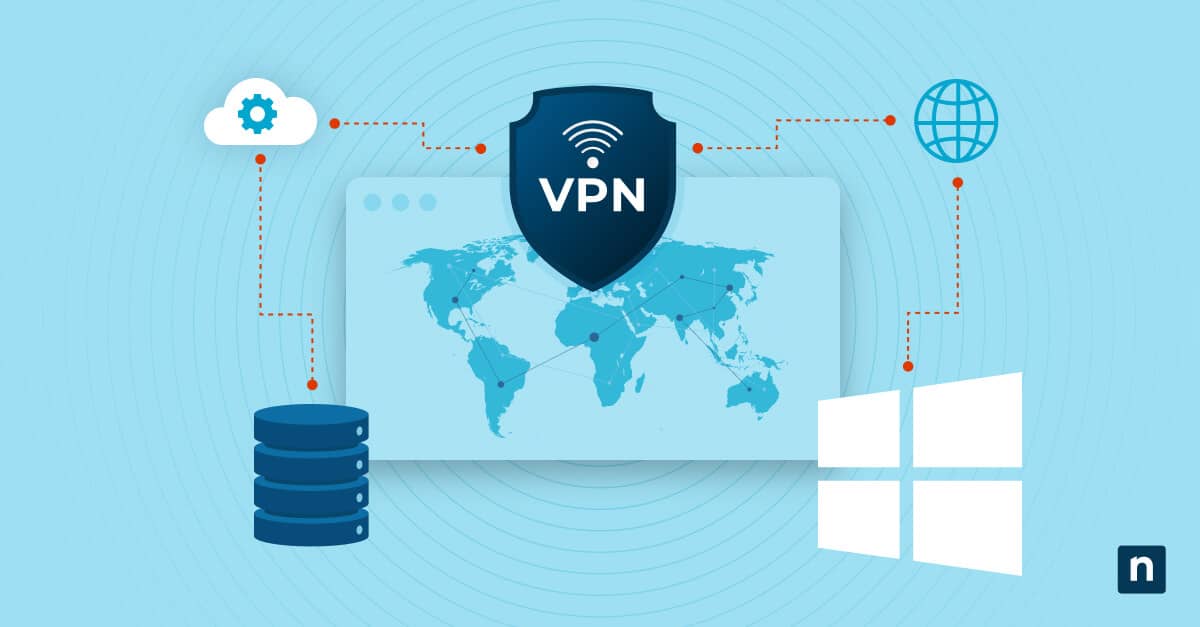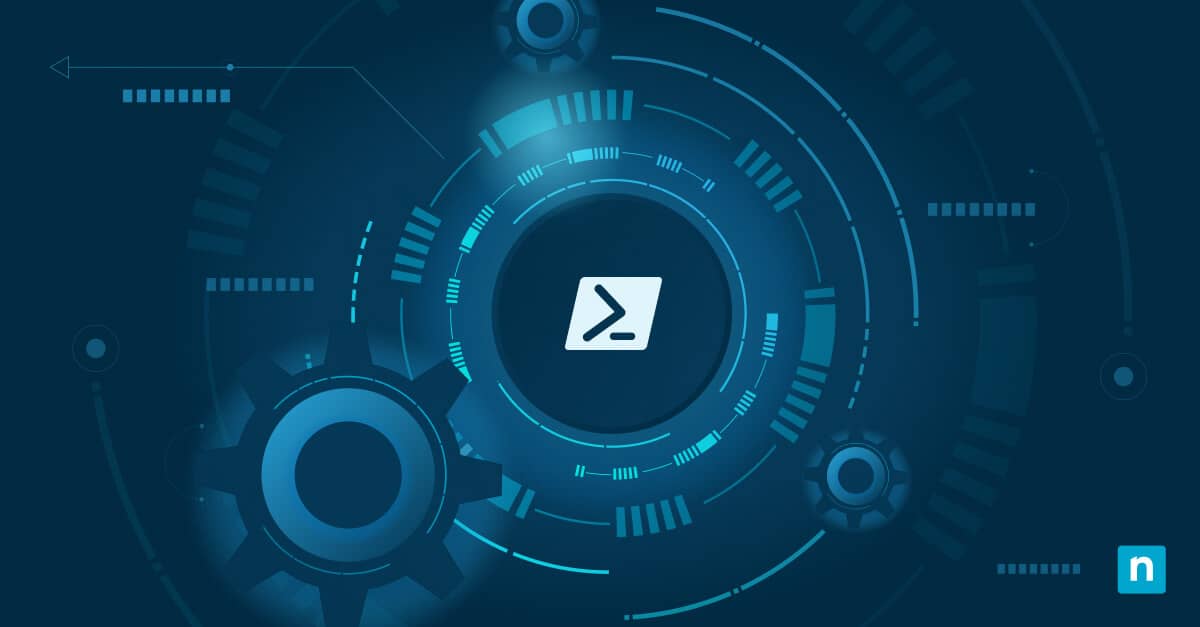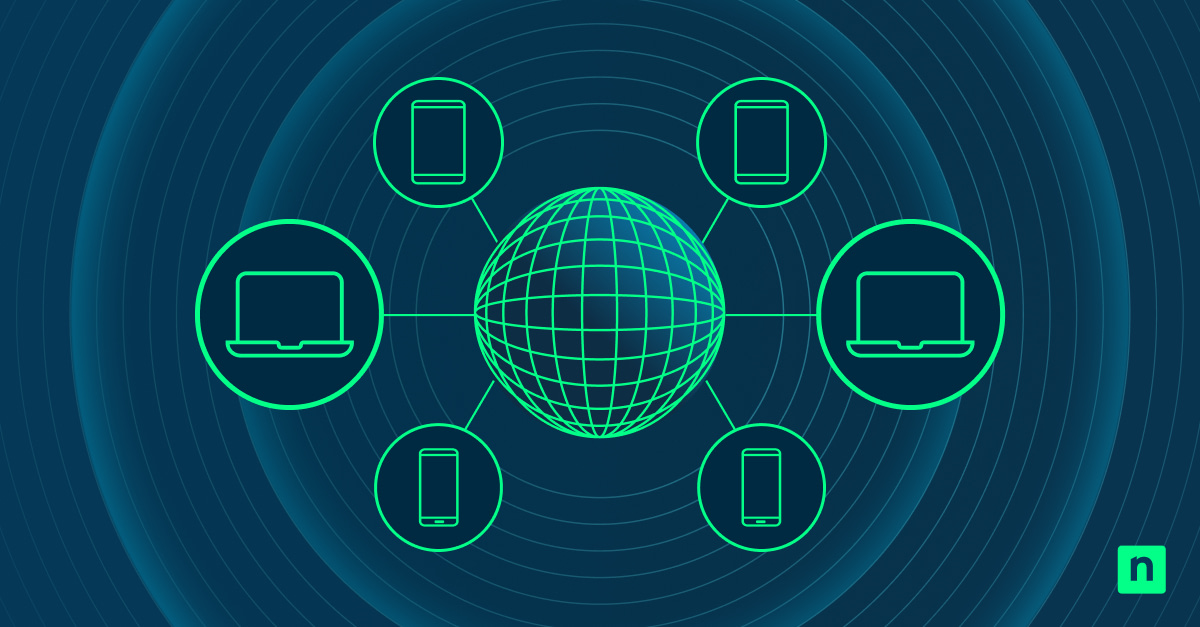The global market value of managed services is expected to exceed $500 billion in 2028, according to Statistica. In a progressively competitive industry, managed service providers (MSPs) must design an effective marketing strategy to raise awareness about their business and attract and convert prospects. Most importantly, MSPs need to differentiate themselves from their competitors while improving their brand visibility and reputation so that they are seen by the right people.
In this MSP marketing guide, we’ll discuss everything you need to know to stand out from the crowd without spending millions of dollars. You will learn to create a highly focused and impressive marketing plan that aligns with your branding and ensures consistent messaging across all your online platforms.
This way, when your target audience decides which MSP to choose, they will always pick you.
What this article will cover:
- What is an MSP marketing plan?
- How is MSP marketing different from other marketing in different industries?
- Why is MSP marketing important?
- What are lead generation, promotion, and digital marketing?
- How are MSP sales and MSP marketing different?
- Important MSP marketing phrases you need to know
- Tips and strategies for MSP growth
- Outsourcing MSP marketing and lead generation
What is an MSP marketing plan?
An MSP marketing plan is a series of strategies to generate and convert leads for your MSP brand. From building brand awareness to showcasing one’s services, the ultimate goal of an MSP marketing plan is to retain existing customers and attract new ones.
The importance of an MSP marketing plan cannot be overstated. Each day, your customers look for “better deals”, especially if they are unsatisfied with your current service. A comprehensive MSP marketing plan anticipates these possible challenges and implements various strategies to reduce the risk of losing your clients.
Specifically, your MSP marketing plan must address the three main obstacles to success: price, lack of trust, and scalability.
It’s worth emphasizing that an MSP marketing plan goes hand-in-hand with MSP deliverables. While your marketing focuses on brand awareness and education, it is also crucial that you can deliver on these promises.
How is MSP marketing different from other marketing in different industries?
MSP marketing is focused on illustrating how your service can provide value to your customers. While all marketing strategies attempt to achieve this to a certain degree, MSP marketing relies heavily on empirical data and customer stories for an improved ROI. Remember: Your target audience wants to know that you can help them provide better services to their customers while also being cost-effective. Your job—and consequently that of your marketing team—is to prove how your MSP is the best choice compared to others.
What MSP marketing is not
- Sales. While there are overlaps between MSP marketing and MSP sales, there are differences to consider. We discuss this later on in this guide.
- Advertising. MSP marketing is not limited to advertising but encompasses all the strategies you use to promote your brand.
- A coercion process. Never force your leads to do anything they don’t want to do. Your brand should be carefully marketed to encourage clients to want to build a relationship with you.
- Static. MSP marketing evolves with the changing IT landscape. As such, it is important to create a marketing plan that considers the latest IT trends.
Keep yourself updated with the leading IT trends for 2024.
Why is MSP marketing important?
Marketing is an integral part of every business on the planet. Without marketing, there is no business because your clients would now know you exist.
In the real world, if a tree falls in a forest and no one hears it, it doesn’t attract squirrels. Similarly, your MSP could provide the highest quality of service, but this would mean absolutely nothing if you have no customers.
MSP marketing helps you grow your MSP business, which will, in turn, help you understand how to price your MSP.
NinjaOne teamed up with IT experts to provide practical, real-world tips on MSP marketing and sales.
It’s important to realize that marketing is a diverse and complex idea. No single tool or approach can possibly touch all of the essential aspects of MSP growth. A proper marketing strategy begins with a holistic appreciation of varied elements-and that appreciation begins with an understanding of their purposes.
Let’s take a closer look at a few of the important aspects of marketing an MSP:
The role of lead generation in MSP marketing?
“Lead generation” and “marketing” are not interchangeable terms, despite what you might have seen or heard. Lead gen is only part of the bigger picture, and it focuses entirely on sending prospects through a journey that eventually ends with them setting a meeting.
While that might sound like marketing as a whole, it’s more of a mechanical look at driving new leads through various marketing steps. Lead generation often includes topics like “funnels” or “content marketing”, themselves only small dots on the marketing landscape.
The role of promotion in marketing?
The idea of “promotion” comes closer to the broader definition of marketing as a whole — and it’s what many people think of when they hear the term “marketing”. Promotion, to explain it as simply as possible, is advertising. Inbound marketing, outbound marketing, ideas shared at live events, sales letters, videos, blog posts — if it’s communicating to the consumer, it falls under promotion.
As such, promotion also includes broader (and critically important) concepts like messaging, differentiation, value perception, and brand. We’ll take a deeper dive into these concepts shortly.
MSP marketing does not have to be expensive.
Read this article on creating your own DIY brochures on Canva.
What is digital marketing for MSPs?
We feel it’s important to clearly define digital marketing so that you can avoid future confusion around where it fits into the marketing puzzle. As a general rule, digital marketing only refers to the aspects of a marketing strategy that are carried out online — i.e. promotional marketing that takes place on social media, email, and your website.
Again, this is an umbrella term that includes things like email lead generation, lead gen funnels, and SEO. The important distinction is that it contains marketing-related activity that takes place digitally, but it is not a digital replacement for all things marketing. This is largely because the key metric of digital marketing (or at least the metric that’s used in sales pitches) is typically reach, not efficacy. The goal is to make you loud, but not necessarily understood. That falls under a completely different set of skills and specializations.
In other words, digital marketing does not innately address all important aspects, such as brand development, positioning, and the crafting of effective marketing materials and messaging.
How are MSP sales and MSP marketing different?
Contrary to popular belief, there are just as many similarities between sales and marketing as differences. On even the most surface level, sales and marketing share the same goal: business growth. And it’s not necessarily a difference in how these two departments operate that separates them as much as it is a difference in where they appear within the buyer’s journey.
Typically, marketing engages the consumer at the beginning of their journey, while sales steps in toward the end to execute discovery meetings, show slide decks, and draw up agreements.
That said, there is a popular trend among large enterprises to blend their sales and marketing departments more than ever before. The realization that overlap in purpose is more important than differences in roles has spurred the trend, and the benefits of sales and marketing departments that work very closely together are coming to the surface.
At the very least, experience has shown that your sales and marketing teams should not operate in independent silos. Marketing shouldn’t be considered an outside task that exists only to feed leads into the sales team. There should be a consistency between sales and marketing, particularly in what they are communicating to the consumer. These departments should inform each other, collaborate, and their activities should be tracked within one unified CRM to provide the most usable data.
Important MSP marketing phrases you need to know
- Call to Action (CTA). This directs your visitors to the following action. For example, you may want them to download a specific guide or sign up for a free trial. Take your CTAs seriously! Appropriate and personalized CTAs perform 202% better than just genetic “click here” ones. (Hubspot, 2023)
- Business-to-business (B2B). As an MSP, you will likely use a B2B marketing strategy since your business will typically provide services to other businesses. That said, 15% of B2B marketers report aligning sales and marketing as their biggest issue (Hubspot, State of Marketing Report 2024)—something you should consider when designing your MSP marketing plan!
- Content marketing. This refers to your blogs, videos, or other social content that improves your SEO, educates your customers, and strengthens your position as an expert in your industry. Notably, 58% of B2B marketers improved their sales and revenue in 2023 because of content marketing (Content Marketing Institute, 2024).
- Evergreen. These are marketing assets that remain relevant regardless of time or situation. While it is important that you produce content that reflects the status quo, you should also create assets that remain salient across time.
- Lead. This is a person or group that has expressed interest in your business. Ideally, leads gained through your MSP marketing plan will enter the sales process and become new customers. Remember that leads can be further classified as “qualified” or not, depending on their interest and capability to use your services.
- Lead nurturing. This is where your marketing and sales team builds a relationship with your leads.
- Organic traffic. This describes any traffic naturally generated on your website, usually through SEO. By improving your search engine ranking, you improve your chance of organic traffic—an important consideration given that less than 1% of users go to the second patch of search results (Forbes, 2024).
- Search engine optimization (SEO). These strategies boost your online presence so you rank higher on various search engines. While no one knows exactly how search engine algorithms decide which company to display first, it is generally accepted that businesses considered to be experts are ranked higher. Remember that SEO leads have a 14.6% close rate (Ahrefs, 2024).
Looking for ways to optimize your listing further and generate more leads?
8 common MSP marketing methods
As you begin to explore ways to promote your MSP, you will find a few terms, techniques, and methodologies appearing frequently. Some of the most widely used include:
- Search Engine Optimization (SEO) – You’d be hard-pressed to find an MSP that doesn’t express at least a passing interest in their search rankings. SEO is the practice of optimizing a website and its on-page content to rank high in (search engine result pages (SERPs). The idea is that the first few MSPs that show up when a potential customer Googles IT companies are the most likely to get their business. Not a bad assumption, since research shows that the first page of Google captures between 71-92% of search traffic.
- Email marketing – There are dozens of tools that can be used for email marketing — Infusionsoft, Hubspot, and MailChimp to name a few — and even more ways to actually leverage those emails toward growth. Automated email campaigns are often used to nurture consumers over time in hopes that they will eventually convert into a hot lead for the sales team. More aggressive email campaigns try to set meetings by catching warm leads at just the right time. Some MSPs also use email for regular newsletters, press releases, and other timely announcements.
- Social media marketing – Social media is still considered a hit-or-miss channel among MSPs. Some swear by it, while others say that they’ve invested considerable time and money without seeing a single lead. If anything, this proves the rule that marketing is not a one-size-fits-all challenge, and that results will always vary depending on location, execution, audience, and creativity.
- Direct mail – Now considered outdated in the wake of digital marketing, many MSPs have actually found success with old-fashioned sales letters or postcards sent via snail mail. When used creatively, direct mail can be a great way to stand apart from other IT providers and leave a lasting impression.
- Free trials – Free trials are great ways to get your leads to use and personally experience your product. If they like what they’ve experienced during the trial, they are likely to sign a contract with you.
- Webinars, workshops, and demos – These can help position yourself as an industry expert and attract potential clients. If possible, try to offer these for free as well to increase participation. This is especially important if you’re a startup and need to improve your brand visibility and repuation.
- Niche marketing — Consider tailoring your marketing efforts to specific niches, especially if you offer a unique service.
- Word-of-mouth and referrals – Ask satisfied customers for feedback and publish these reviews online. You can also ask your customers for referrals. These help improve your SEO ranking as well.
MSP marketing tips & strategies
When it comes to marketing, the most important thing is not what everyone else is doing, it’s what you should be doing. After all, complaints about spam and over-advertising usually stem from too many companies executing the exact same strategies within the same markets. Marketing is a dynamic beast, and it tends to reward those who think outside the box — or at least think a few steps ahead.
Here are a few tips from NinjaOne to help you get ahead with marketing your MSP:
Think competitively – There’s only so much that can be accomplished by informing the consumer and raising awareness. At some point, every end-user has to decide about which MSP to sign with — and the most competitive IT company will win. It’s important not to think of marketing as a means to “get your name out there”, but as a means to communicate value. Highlight why consumers should choose you over your competitors at every turn.
Build a brand – This doesn’t mean running out to hire a graphic designer. Brand strategy is about far more than logos and slogans. Brand strategy lays the groundwork for communicating value to your audience — it’s the part of marketing that digital marketers tend to leave out. Whereas most marketing talk focuses on how and where to deliver your message, MSP brand strategy focuses on what that message actually needs to be to resonate with your audience and drive new business.
Be fearless – Let’s be honest…most MSP marketing tends to be pretty bland and generic. If you have a hard time telling MSP websites and emails apart, imagine how dull it all must seem to the people you’re trying to reach. Don’t be afraid to present your MSP with some personality and attitude. Stand out and be noticed. Far too many IT providers use the idea of “professionalism” as a cloak for being mundane and forgettable. Don’t be one of them!
Market consistently – One of the biggest marketing mistakes MSPs make is to treat marketing like a yo-yo diet. They’ll try some kind of marketing for a couple of weeks, maybe months, and then stop. Then they try something else a few months later. This works just about as well as leaping from one fad diet to the next while taking breaks to eat cake between each attempt. A marketing strategy is just that — a long-term plan involving iterative steps to produce results over time. Commit, follow-through, and put in the resources and work…or you will likely never realize the results you’re hoping for.
Practice due diligence – There are more marketing tools, gurus, tricks, peer groups, and workshops vying for your money than stars in the sky. Be cautious about where you invest your time and money because gimmicks rarely pay off. Learn the textbook fundamentals of marketing first to better calibrate your “baloney detector”. Once you know the basic ins and outs of marketing from a traditional standpoint, you will be far better equipped to spot snake oil before opening your checkbook.
Should I outsource my IT company’s marketing?
Before asking this question, ask yourself this: should most business owners outsource their IT?
The answers to both questions should be similar:
“Yes, especially if they are trying to see a certain level of performance and return on their investment.”
Sure, small start-ups can probably manage their own IT. One-person operations don’t need an MSP. They’re able to plod along getting just as much as they need from minimal IT resources, and they just handle their own troubleshooting as necessary.
The same can be said for marketing. The average person off the street can figure out how to send a few emails and build a website from a WordPress template. These things aren’t hard, and maybe a one-person MSP can’t afford any other option. But the return on investment will be fully in alignment with that approach.
The thing to consider is the threshold that every growing business crosses at some point — the point where the DIY method just can’t keep up with the reality of the situation. As an MSP, you see it all the time. Businesses try to keep their IT in-house for far too long, knowing full well that it’s cobbled together with bubblegum and duct tape. They deal with the hassles, lost productivity, and unnecessary costs because it seems easier than farming the whole ordeal out to experts.
Ironically, this is often the same mindset MSPs have around marketing.
The error in this logic is as simple as comparing your business model to that of a marketing agency. MSPs exist because most SMBs don’t have techs, engineers, and cybersecurity experts in their own ranks. Marketing agencies exist because MSPs don’t have brand strategists, trained copywriters, advertising creatives, and analysts in their ranks. It isn’t about the labor or the tools — it’s about the skills and expertise.
When it comes to asking about outsourced marketing, the entrepreneurial maxim of “do what you do best and outsource the rest,” is one of the most applicable sayings around.
How MSP marketing defines your business
Marketing leads to successful businesses. Not because of what it does, but because of what it truly is. Marketing is the foundation of all business because it’s the bond that ties a product or service to a consumer with money in hand. The concepts of marketing make up who you are as an MSP, where you stand in the market, and why you matter (or don’t matter) in the eyes of the consumer. Marketing defines your business’s place in the broader world of technology, and when leveraged correctly, it gives you a competitive edge that just can’t be obtained anywhere else.
There are more ways to market an MSP than could be possibly covered in one article. We’ve explored the most popular methods and some next-level advice for standing apart from the crowd. As you forge ahead to explore your options, we hope you keep a competitive, strategic mindset toward marketing that allows you to reap the greatest rewards.
NinjaOne provides MSPs with a variety of free marketing resources
NinjaOne is the trusted endpoint management company that has been proven to increase productivity, reduce security risk, and lower IT costs from day one. 17,000+ customers worldwide trust NinjaOne to automate the hardest parts of IT to deliver visibility, security, and control over all their endpoints.
The company also regularly posts IT guides like this to help you make better decisions for your MSP.
Interested in more marketing resources from Ninja? Check these free assets:
- MSP Bento – free MSP resources and weekly newsletter
- MSP sales process guide & checklists
- MSP Live Chats
- Managed services pricing calculator
- Managed services agreement template
For more information on how NinjaOne can help your MSP marketing efforts







